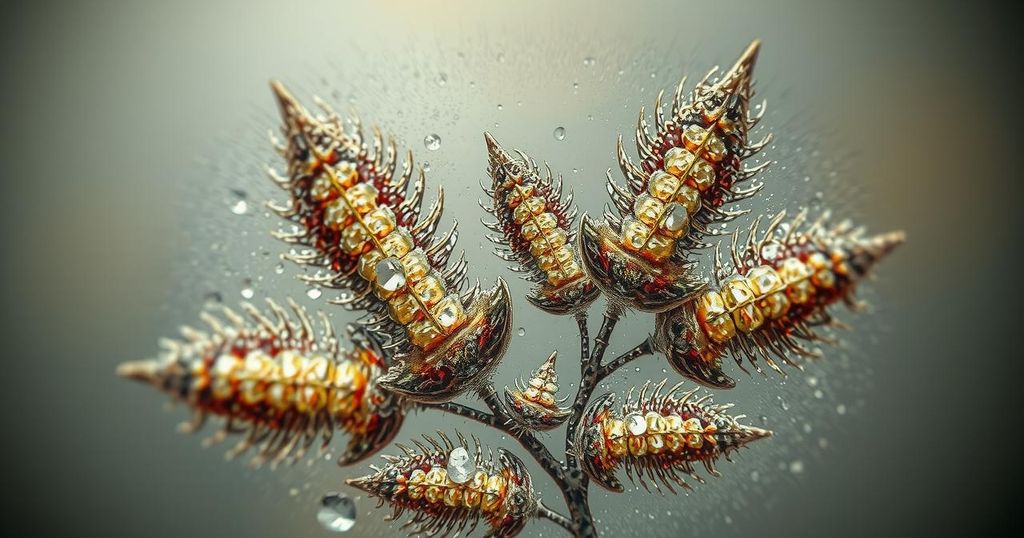Palestinian Seeds Contribute to Global Seed Vault in Arctic
The Global Seed Vault in the Arctic has received a new deposit of Palestinian seeds among over 30,000 samples from various countries. This facility, aimed at preserving global plant diversity amid disasters, continues to support food security as climate change and conflict threaten agricultural stability.
On Wednesday, the Global Seed Vault, known as the “doomsday vault” in the Arctic, announced the receipt of thousands of seed samples, including those from Palestine, amidst the ongoing conflict and food scarcity in Gaza. Established in 2008, the vault serves as a critical resource for preserving global plant diversity in the face of potential disasters such as natural catastrophes, wars, climate change, and disease outbreaks. Last Tuesday, approximately 30,000 seed samples from a record number of 23 organizations across 21 countries were deposited into the facility, located in the Svalbard archipelago of Norway. Among the newly added items were 21 Palestinian seed varieties, including vegetables, millet, and herbs, contributed by the Palestinian non-profit organization, the Union of Agricultural Work Committees (UAWC). The vault, designed to endure various catastrophic events, is situated within a mountain on Spitsbergen Island, approximately 1,300 kilometers from the North Pole. Its aim is not only to preserve plant species but also to support global food security as populations grow and climate challenges intensify. As of now, the facility houses around 1.3 million seed varieties, which can be accessed by their respective owners as needed. The Crop Trust, which partners with the Global Seed Vault, indicated that a further seed delivery is anticipated in February from Sudan, another region currently afflicted by conflict and famine. Stefan Schmitz, director of the Crop Trust, emphasized the dire situation regarding food security, noting that “Climate change and conflict threaten infrastructure and impact food security for over 700 million people in more than 75 countries worldwide.” He also noted, “Genebanks are ramping up efforts to back-up seed collections, and we are proud to support them by providing a safe haven in Svalbard.” The vault’s design offers significant protection against disasters, being located away from conflict zones and positioned at an altitude that mitigates the risks associated with rising sea levels. In the event of a refrigeration failure, the permafrost surrounding the vault would still maintain a cold temperature, thereby preserving the integrity of the seeds stored within. © 2024 AFP
The Global Seed Vault, officially opened in 2008, serves as a safeguard for global plant genetic resources, particularly in light of increasing threats from climate change, wars, and other manmade disasters. The facility’s design and location in the Arctic aim to ensure the longevity and security of invaluable seed collections from around the world. It functions as a fail-safe for genebanks worldwide, ensuring that agricultural biodiversity can be preserved for future generations.
The recent inclusion of Palestinian seeds in the Arctic’s Global Seed Vault highlights the importance of preserving agricultural diversity in the face of global challenges such as conflict and climate change. With the support of international organizations, this initiative serves as a bulwark against potential food shortages, providing a sense of hope and security for food resources worldwide. The vault continues to represent a collective effort to maintain the genetic diversity that is essential for future agricultural resilience.
Original Source: phys.org




Post Comment